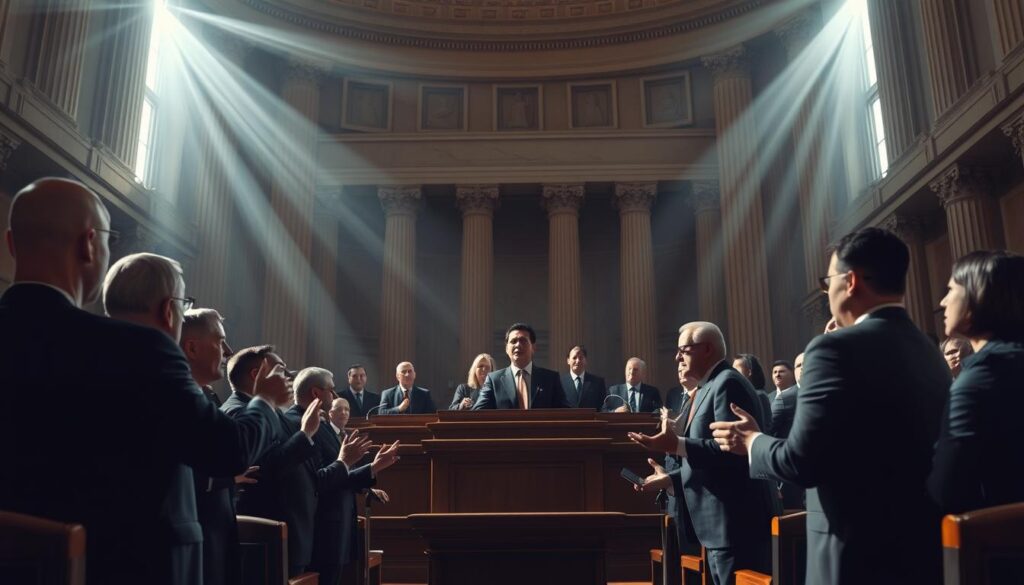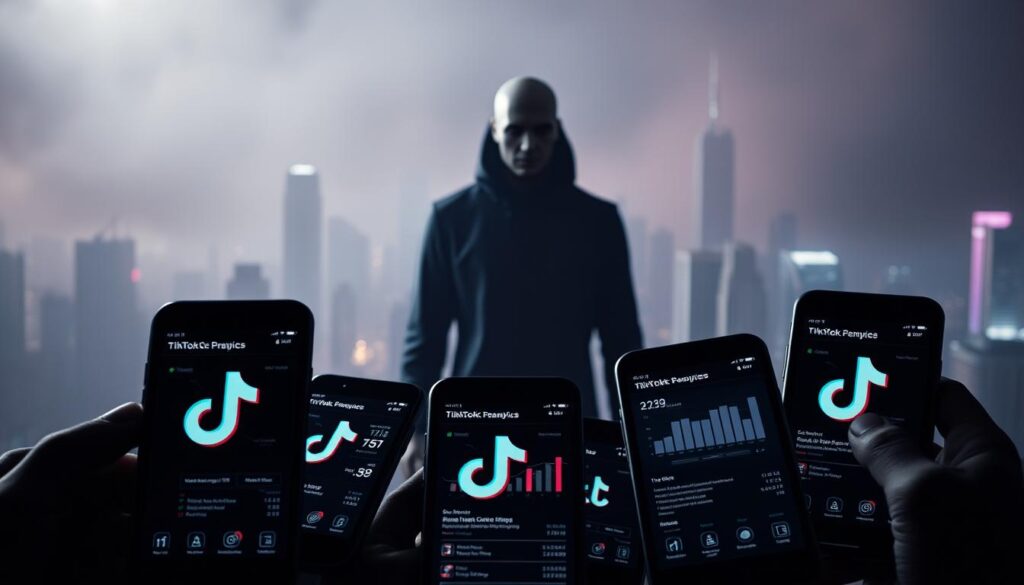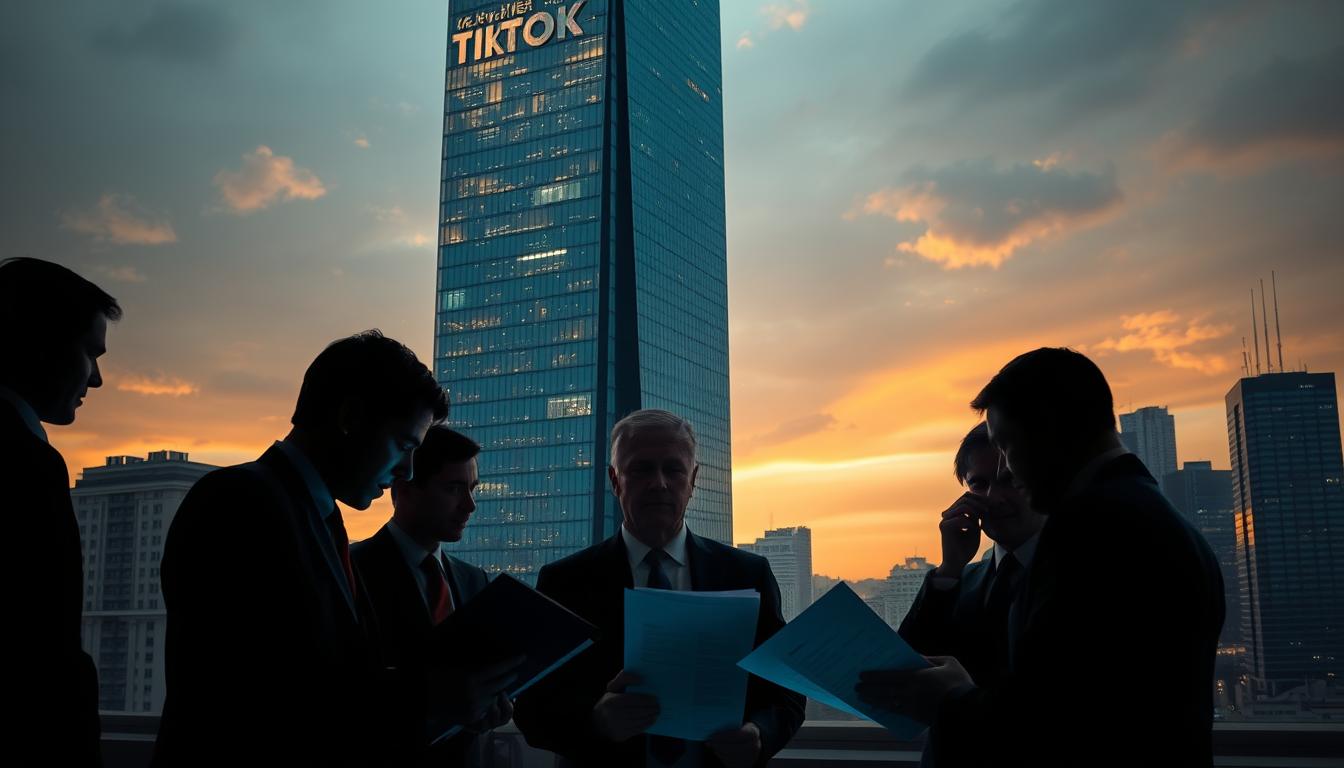The battle over TikTok’s future has captivated millions. With 170 million U.S. users at stake, the app’s fate hinges on high-stakes negotiations. Amazon’s surprise bid added a twist, while an April deadline loomed for ownership changes.
Political drama intensified as President Trump delayed enforcing a ban, despite Supreme Court support. The platform isn’t just for viral dances—it’s a social commerce powerhouse. Influencers drive Amazon sales through creative content, blending entertainment with shopping.
Major players like Oracle and Blackstone entered the fray, each with distinct visions. Frank McCourt’s “People’s Bid” promised user control, adding another layer to the debate. This sale reshapes not just an app, but digital culture itself.
Key Takeaways
- TikTok’s acquisition impacts 170 million American users.
- Amazon made an unexpected last-minute offer before the April deadline.
- Political delays kept the app operational despite legal challenges.
- The platform bridges social media and e-commerce through influencer partnerships.
- Oracle, Blackstone, and McCourt’s bid highlight competing visions for TikTok’s future.
Who Bought TikTok? The High-Stakes Acquisition Drama
The race to control TikTok turned into a corporate showdown with unexpected twists. While Oracle and Blackstone dominated early talks, Amazon’s last-minute bid via a letter to VP JD Vance added chaos. Skeptics questioned its viability, given TikTok’s reliance on Amazon’s infrastructure for e-commerce integrations.

Amazon’s Bold but Unlikely Move
Amazon’s surprise offer aimed to leverage TikTok’s influencer-driven shopping links. Creators already boost sales by tagging products from Amazon’s platform. Yet, negotiators doubted the bid’s sincerity, seeing it as a tactical play rather than a real takeover attempt.
Trump’s Coalition vs. ByteDance
The White House pushed a unique solution: a U.S.-investor coalition with Oracle and Blackstone. Instead of a full sale, Trump proposed a 50-50 ownership split with ByteDance. Legal experts called it unprecedented, citing national security and antitrust hurdles.
“This isn’t just business—it’s about controlling the narrative of global tech dominance.”
- Blackstone’s role: Talks focused on a minority stake, avoiding ByteDance’s total exit.
- April deadline pressure: The Trump administration raced to finalize terms before enforcement.
- Investor backlash: Some shareholders resisted dilution of ByteDance’s control.
As the deadline loomed, TikTok’s fate hinged on politics as much as profits. The drama revealed how deeply tech, law, and government now intertwine.
The Legal and Political Battle Over TikTok
TikTok’s legal saga has become a defining moment in tech regulation. The platform faced intense scrutiny from U.S. authorities, blending national security concerns with free speech debates.
Trump’s Executive Orders and the Supreme Court’s Role
President Donald Trump delayed enforcing a TikTok ban until April 5, despite the Supreme Court upholding the PAFACA Act in January. This law aimed to shield Americans from foreign-controlled apps.
TikTok sued the U.S. government, arguing the ban violated the First Amendment. The platform claimed its U.S.-based data centers ensured compliance, but officials remained skeptical.

National Security Concerns and the April Deadline
The United States alleged TikTok’s parent company, ByteDance, could share user data with China. American investors pushed for stricter oversight, while TikTok insisted its operations were independent.
As the April deadline loomed, two scenarios emerged: a forced shutdown or extended negotiations. The outcome would set a precedent for how global tech platforms operate in the U.S.
“This isn’t just about an app—it’s about who controls the flow of digital information.”
- 2020–2024 timeline: Trump’s initial ban, Biden’s bill signing, and court battles.
- Data disputes: TikTok’s safeguards vs. government demands for transparency.
- April 5: The day that could have erased TikTok from U.S. phones.
Meet the Investors: Who’s Bidding for TikTok?
Investors from tech giants to internet celebrities are vying for TikTok. The platform’s potential has sparked bids blending business, tech, and even user activism. Each group offers a distinct vision for its future.

Frank McCourt’s “People’s Bid” and Its Open-Source Vision
Real estate mogul Frank McCourt led a coalition including Reddit’s Alexis Ohanian and web pioneer Tim Berners-Lee. Their plan? A user-controlled model prioritizing data privacy. “This isn’t just a deal—it’s a movement,” McCourt stated.
The group proposed open-source algorithms to let users shape content moderation. Kevin O’Leary backed the bid, calling it a “democratic alternative” to corporate ownership.
Surprise Contenders: MrBeast, Oracle, and Walmart
YouTube star MrBeast teamed with Roblox’s CEO and crypto leaders for a $30B offer. Their pitch leaned into gaming integrations and creator monetization. Meanwhile, Oracle focused on cloud partnerships to secure U.S. data operations.
Walmart eyed TikTok Shop’s e-commerce potential. The retail giant saw synergy with its online marketplace, aiming to rival Amazon’s influencer-driven sales.
“TikTok’s next owner won’t just control an app—they’ll redefine social media’s power balance.”
Why Elon Musk Isn’t in the Running
Despite early speculation, Musk ruled out a bid in February. Regulatory scrutiny and X’s struggles likely influenced his decision. Analysts noted Tesla and SpaceX already demanded his focus.
- Fringe bids: Zoop (with OnlyFans’ founder) and Perplexity AI pitched niche solutions.
- Oracle’s edge: Existing ties to TikTok’s U.S. data centers.
- User impact: McCourt’s bid promised transparency reports—a first for major platforms.
What This Means for TikTok’s 170 Million U.S. Users
For 170 million U.S. users, TikTok isn’t just an app—it’s a livelihood. From small businesses to viral creators, the platform’s fate could reshape digital careers and habits overnight. Here’s what’s at stake.

App Stability and Data Privacy Overhaul
January’s brief outage sparked panic. A prolonged shutdown could erase incomes for creators and brands relying on the platform. Under U.S. ownership, expect stricter data privacy rules:
- ByteDance’s access to U.S. user data may end.
- New transparency reports could detail content moderation.
- Algorithm changes might affect viral reach and ad targeting.
Shopping and Influencer Culture at a Crossroads
Influencers drove $17B in U.S. retail sales via Amazon links in 2023. A Walmart or Amazon takeover could integrate TikTok Shop deeper into their ecosystems. This table shows potential shifts:
| Scenario | Effect on Shopping | Effect on Creators |
|---|---|---|
| Amazon Ownership | More direct product tagging | Higher commissions for top influencers |
| Walmart Ownership | Exclusive marketplace deals | Brand partnerships with retail giants |
| McCourt’s “People’s Bid” | Decentralized shopping features | User-controlled monetization |
Influencer culture may pivot toward long-form content if algorithmic visibility shifts. Smaller creators fear fragmentation if U.S. operations split from global TikTok.
“The platform’s soul is in its creators. Whoever owns it must protect that ecosystem.”
Conclusion: TikTok’s Future in the U.S. Remains Uncertain
The battle for control of the viral platform continues with no clear winner. Competing bids from Amazon, Oracle, and McCourt’s coalition highlight the app’s value. Yet, ByteDance resists a full sale, complicating negotiations.
The April 5 deadline looms as a critical moment. Without a deal, the app could face a ban or phased shutdown. Political tensions between the U.S. and China add layers to the debate.
This isn’t just about an app—it’s a test of security, regulation, and digital influence. The administration’s next move will shape social media’s future. Stay tuned as developments unfold.
For more on digital trends, explore our digital marketing insights.

